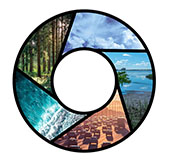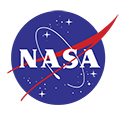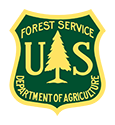Workshop Announcement: 'Global Science and Data Network for Coastal Blue Carbon'
In January 2016 the U.S. Carbon Cycle Science Program/CCIWG and partners will convene a planning workshop to develop a template toward establishing a Global Science and Data Network for Coastal Blue Carbon. At this initial workshop, scientists, coastal practitioners and other data users will discuss how the network and database should be structured to best achieve the following goals:
- Improving basic and applied science on carbon and GHG cycling in vegetated coastal ecosystems including basic science questions that addresses the immediate and future needs of decision-makers, carbon accounting and coastal management;
- Identifying priority research needs and geographies;
- Providing a mechanism for collecting and providing a coastal carbon and GHG data archive for use by the science community, coastal practitioners and other data users;
- Building the capacity of coastal carbon stakeholders globally to collect and interpret high quality coastal carbon science and data.
The coastal ecosystems of mangroves, tidal marshes, and seagrass meadows provide numerous benefits and services that are essential for supporting communities and species along the world’s coasts as they adapt to climate change. Additionally, these vegetated ecosystems sequester and store significant amounts of “coastal blue carbon” from the atmosphere and ocean and hence are now recognized for their role in mitigating climate change. Despite their importance, coastal blue carbon ecosystems are some of the most threatened ecosystems on Earth, with an average global loss rate of up to 2% per year.
Designing and implementing effective plans, conservation, and restoration projects that can leverage the importance of coastal ecosystems for climate change mitigation will require access to high quality data. Currently, a widely accessible database of quality controlled coastal carbon data does not exist. Governments and organizations, especially those in less developed countries, are therefore at a severe disadvantage as they attempt to integrate coastal ecosystems in national carbon accounting, integrate coastal ecosystems in climate mitigation policy, and develop coastal conservation and sustainable management projects based on carbon value.
This proposed network will be conceptualized to be be distinct from other “blue carbon” efforts, seeking to provide a foundation upon which the coastal carbon science, conservation and management community will continue to build into the future. It will increase the accuracy of and confidence in global estimates of carbon cycle processes, fluxes and storage as well as GHG emissions from coastal ecosystems, and allow global access to quality controlled coastal ecosystem carbon data. A top priority is to provide a forum and mechanism to promote exchange and collaboration between scientists and coastal carbon data users globally, thus ensuring that coastal carbon science is verifiable and responsive to the needs of coastal managers and decision-makers.
For details on the workshop contact:
Emily Pidgeon, Conservation International, San Francisco, CA
Jennifer Howard, Conservation International, Washington, DC
Jim Tang, Marine Biological Laboratory, Woods Hole, MA
Kevin Kroeger, USGS, Woods Hole, MA
Lisamarie Windham-Myers, USGS, Menlo Park, CA




